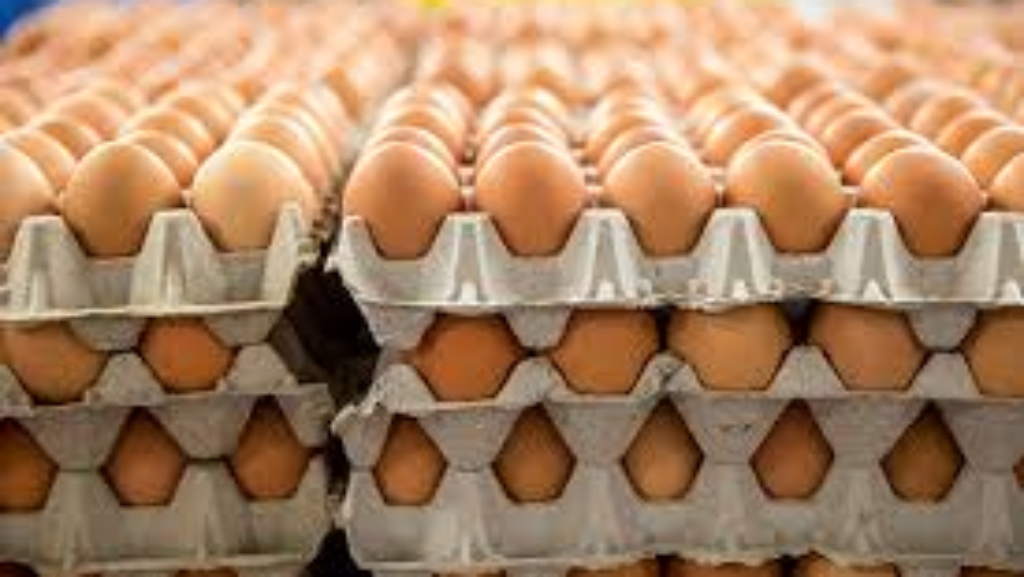Local egg producers are working towards alleviating a temporary “lull” in supply as the industry grapples with reduced supply from the main suppliers and an unexpected surge in orders from local food manufacturers.
The Barbados Egg and Poultry Producers’ Association (BEPPA) is however urging Barbadians not to panic about the inadequate supply of eggs on the market.
In fact, president Stephen Layne has given the assurance that the stakeholders in the poultry industry were working assiduously to rectify the matter and within the next few weeks the supply should be back to normal levels.
Layne told Barbados TODAY one of the main egg producers was encountering challenges that had led to them operating at less than half of their capacity.
He added that the rising cost to import liquid eggs and other egg products had led to bakeries and other businesses turning to local producers for the primary product.
“There is more of a lull than a genuine shortage but within the next four weeks Chickmont will pick up the slack that is there. This is not to say that people are not getting any eggs at all. BEPPA is resilient and we are breaking even now and we will even have excess eggs in a short period to supply locals and the tourism sector – hotels and the cruise ship industry,” he said.
According to Layne, the other main producer is still delivering some eggs but doesn’t have the capacity.
“He supplies about 30 per cent of the eggs but he is not in that region, about less than half of that. However, Chickmont is stepping up which is a positive thing and small farmers are playing their part. So I am very optimistic about going forward.”
Layne said that another contributing factor to the issue was the unexpected big demand from the food manufacturing industry.
“Bakeries that were bringing in imported liquid eggs don’t have the capacity to do so anymore and I think that has impacted the demand for eggs. We had a very disloyal group of people importing eggs when the local industry invested in every area that they requested for the production of rum creams and specialty baking.
“But they didn’t want to see the local industry and now, because they can’t get what they want to import at a price favourable to them, they are coming to us. So they are impacting heavily on what is locally-produced. Last year, they weren’t buying from us and we ended up with over 300 million eggs in cold storage.
“If you look at the cost of eggs overseas compared to that in Barbados, ours is cheaper. Overseas, they are having challenges, production costs have increased and it (the cost of eggs) is about three times higher than what it is in Barbados. They want to come back to the local market for eggs, so they are putting some strain on the sector.”
When contacted, operations manager of Chickmont Trevor Gunby said that traditionally that company produced 40 per cent of what was demanded but they were being asked to produce more.
“There is a shortage of eggs worldwide and that would apply to Barbados too. We have tried to assist everyone in Barbados but we can’t meet the requirements yet because we have a flock of birds that is about to come into production but nature has to take its course. You have to wait until they come into maturity.
“A bird takes six months to reach maturity to lay, so it’s not something that can happen in two or three weeks,” he said. “It has been very difficult trying to pick up the shortfall because there was no notice. In some instances our orders are doubling, but in a few weeks we will have more than we usually produce.”
Layne added that when this new flock comes into production and things return to normal, BEPPA would be in a better position to negotiate with the food manufacturing industry.
“When the birds begin to lay and their production comes on stream in the next four weeks or so, hopefully by then we will be able to negotiate with the bakeries and the other persons who weren’t taking local eggs that this is how we need to go forward for a sustainable future.
“There was a significant take up by small egg farmers servicing customers in their communities and supermarkets and bakeries that are alleviating this challenge we are going through. I hope that they will not be forgotten when things come back on full stream by the bigger player.”
The BEPPA president said that in general, egg production suffered a significant blow when a key stakeholder’s farm was destroyed by a weather system a few years ago. He added that that farmer never got back into production.
Meanwhile, at least one supermarket is reporting that their egg supply is not affected.
Purchasing manager of Jordan’s Supermarket Anthony Moseley said they got eggs from small farmers.
“We don’t have a problem with eggs right now,” he said.
sheriabrathwaite@barbadostoday.bb





